The 24th
LaureateArchitecture
Henning Larsen
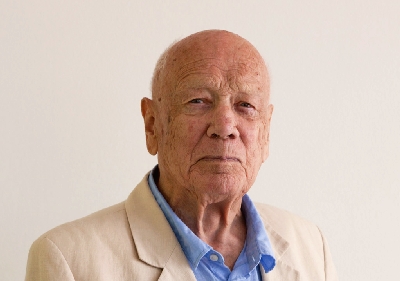
Light seems to fall from the ceiling and windows,reflecting off the floors and walls,filling the space sublimely; these minutely calculated lighting effects are one of the greatest characteristics of Henning Larsen’s architecture.
His respect and passion for light,said to have been nurtured as a child growing up in Denmark’s dark winters,has led him to be called the Master of Light.
After studying at the School of Architecture of the Royal Danish Academy of Fine Arts and at Massachusetts Institute of Technology,he founded his own office in 1959.
His light filled designs have won many competitions and commissions,and buildings such as Malmö City Library (Sweden,1997) and the Opera House (Copenhagen,2005) have attracted attention worldwide for their interiors and unique sense of space. Even in areas where there is plenty of sunlight,such as the Middle East,his buildings,like the Ministry of Foreign Affairs of Saudi Arabia (Riyadh,1984),are admired for the quality of light in the design.
He says,“I was destined to become an architect from my early childhood.” At 87,he is no longer directly involved in projects,but closely follows the development of new schemes and greatly enjoys discussing details with his staff.
He is one of the greatest contemporary Scandinavian architects and is the first Danish artist to receive the Praemium Imperiale.
Biography
Light seems to fall from the ceiling and windows,reflecting off the floors and walls,filling the space sublimely; these minutely calculated lighting effects are one of the greatest characteristics of Henning Larsen’s architecture. He has been described as the Master of Light and is one of the greatest contemporary architects not only in Denmark but in the whole of Scandinavia.
“The variable weather in Denmark creates a continuously changing drama of light. It can be a range of sunbeams from an opening in the clouds or the almost horizontal sunlight in the evening under a roof of grey clouds. The spaces of nature are created by light.”
Light and space in the Malmö City Library (1997),one of his major works,one can savor the beauty of both. Inside,you will see the enormous space ― the four floor-high atrium and the walls that are mostly covered by glass. The deep green hues of the trees in the eastern park are carried through into the building on soft waves of light. The building reflects the course of the day and year,almost like a “Calendar of Light.”
His respect and passion for light was nurtured through a childhood growing up in a sparsely populated area in a western region of Denmark,where daylight hours are short and when lamps were the only light source. He took good care of the lamps in the house,making sure that the flame would not go out. “I was very preoccupied not only with daylight but also with artificial light sources because any kind of light contributes to frame and create space.”
After studying at the Royal Danish Academy of Fine Arts and at the Massachusetts Institute of Technology,he founded his own office in 1959. Active participation in competitions,which he has kept winning with his light-filled designs,has spurred the development of his studio. In the Middle East,where they have plenty of sunlight,his unique methods of handling light are highly praised and are visible in such buildings as the Ministry of Foreign Affairs of Saudi Arabia (Riyadh,1984). He has had many commissions in this area as a result.
In Copenhagen,such buildings as the Ny Carlsberg Glyptotek (New Carlsberg Sculpture Museum,1996) with its famous “passage of light” and the IT University (2004) with its large central atrium,dominated by cubic rooms ― designed as corbelled boxes ― placed like opened drawers of various sizes,have attracted worldwide attention,as has The Copenhagen Opera (2005),an exquisite building with a commanding view over the inlet of Amalienborg Palace,the residence of Queen Margrethe II. He has yet to work in Japan and is looking for an opportunity to do so.
160 architects from 20 different countries are working in Henning Larsen Architects in central Copenhagen. He has been eager to help young architects,the movers and shakers of the future. In 2001 he personally financed the establishment of the Henning Larsen Foundation and every year on his birthday,one or more grants are awarded to promising young architects.
At the age of 87,he is no longer directly involved in projects,but closely follows the development of new schemes and greatly enjoys discussing details with his staff. While working,he often listens to his favorite music by Bach. He is the first Danish artist to receive the Praemium Imperiale.
Chronology
-
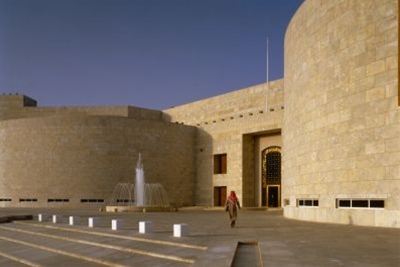
Ministry of Foreign Affairs of Saudi Arabia
-
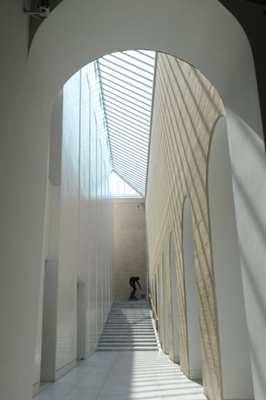
Ny Carlsberg Glyptotek
-
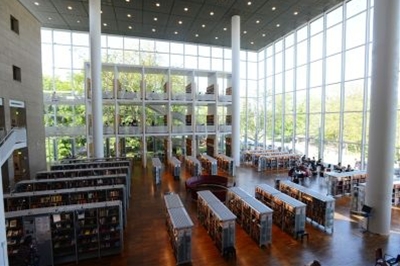
Malmö City Library
-
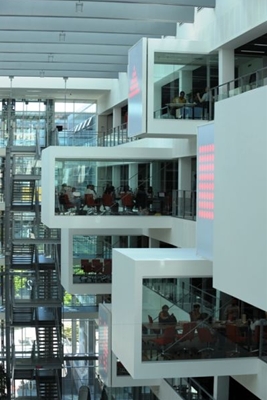
IT University
-
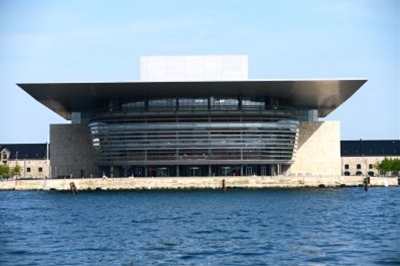
The Opera in Copenhagen
-
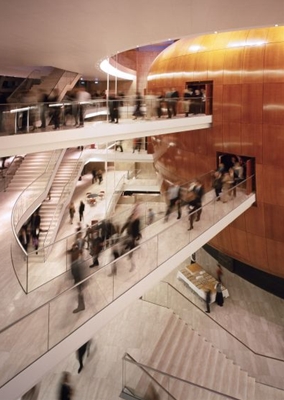
The Opera in Copenhagen
-
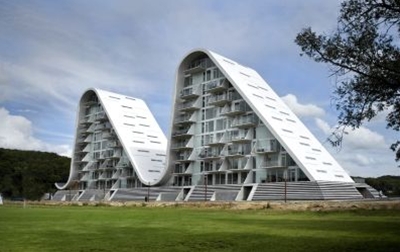
The Wave

